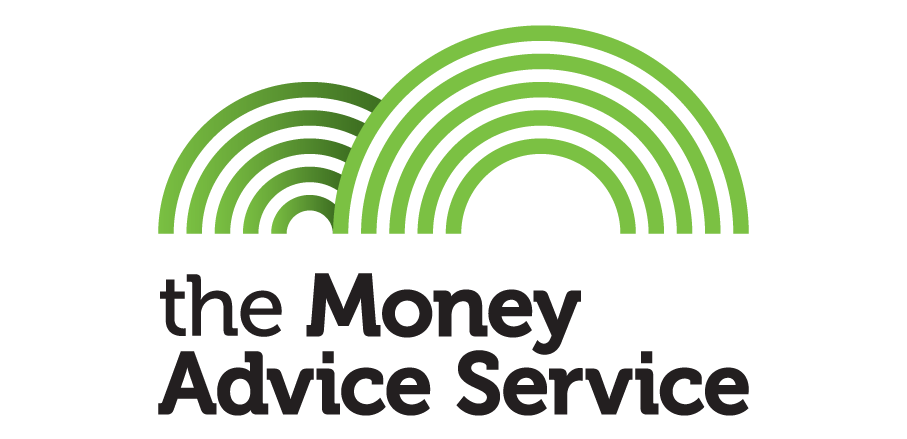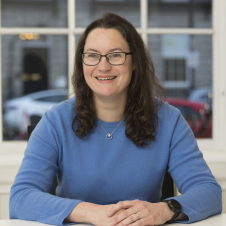Personal debt solutions in Scotland
Getting you back in control of your finances
You are required to take independent money advice prior to progressing with any formal debt solution to make sure you find a solution that best suits your needs.
To get started, we’ll help you draw up a realistic and sustainable budget, before explaining all of the options available to tackle your debt; explaining all the pros and cons of each option to ensure you can make an informed decision.
Protection for you
If you’re worried about creditors taking action against you while you are considering your options, it can be helpful in some instances to apply for a moratorium, which is breathing space to allow you to consider your options. We will discuss this option up front and we can assist you in applying for a 6 month moratorium, which will prevent your creditors from taking any new legal action against you.
The moratorium would be registered on a public register.
Debt solutions available to Scottish residents
Debt Management Plan (DMP)
What it is: A Debt Management Plan is a non- legally binding repayment plan that allows you to repay your debts at an affordable amount over a longer period of time.
How it works: You make one affordable monthly payment which is then paid to your creditors on a pro-rata basis. Under a DMP, you will pay back all of your debts. There is no guarantee the creditor will freeze the interest or stick to the DMP long term.
Using a DMP will impact your credit file, however the chances are it will already be affected by your financial situation. It will not stop debt collection or legal action and your debts may increase.
Is this for you? This may be a suitable option if you have some disposable income that you can afford to pay over a period of time and your creditors are willing to accept a proposal offered to them. If you own assets or your job will be impacted by an insolvency solution this may be an option for you to consider.
Cost: There is usually a fee payable for this service.

Debt Payment Programme (DPP)
What it is: A Debt Payment Programme under the Debt Arrangement Scheme is a legally binding repayment plan that not only stops the debt collection and legal process, it also freezes all interest and charges. It allows you to repay your debts at an affordable amount over a longer period of time.
How it works: You make one affordable monthly payment which is then paid to your creditors on a pro-rata basis. Because you are paying your creditors in full from your income, you do not need to include or sell your assets unless you choose to do so. Your job may be less likely to be impacted due to this not being an insolvency procedure. Under a DPP, you will pay back all of the principal debt.
Using a DPP will impact your credit file.
Is this for you? This may be a suitable option if you have some disposable income that you can afford to pay over a period of time, your job would be impacted by entering into a formal insolvency procedure or you have assets to protect which you do not wish to put at risk.
Cost: There is no fee payable by the debtor for this service. The creditors meet the costs of the Debt Payment Programme.

Protected Trust Deed (PTD)
What it is: A Protected Trust Deed is a form of personal insolvency in Scotland administered by a Trustee (for example, Johnston Carmichael) on behalf of your creditors, i.e. those you owe money to.
Under this arrangement your Trustee is appointed to deal with your assets and your liabilities. Normally you make one affordable monthly payment from your earned income for a period of four years. If you have assets with any value then the Trustee can sell these for the benefit of your creditors. The Trustee will discuss this with you and the most appropriate way of realising these assets. Distributions are made to creditors on a pro-rata basis.
How it works: You make 48 (or more) affordable monthly payments, any value in assets you have is realised for the benefit of your creditors. After all assets have been realised and income contributions paid you will be discharged from your debts with the exception of any of the following:
- Mortgages
- Student Loans
- Court fines
- Liabilities incurred fraudulently
A PTD will impact your credit file and your assets may be at risk.
Is this for you? This may be a suitable option if you have unmanageable debts, some disposable income which you could pay over a four year period, or longer, little or no assets and if you are a Director of a limited Company. You are able to be subject to a Trust Deed if the articles of association allow this or are amended to reflect this.
Cost: There is no upfront fee payable for this service. Our fees come out of any money we gather from your contributions and/or assets. We are transparent with you throughout the process in terms of what we have charged and the creditors do have a right to challenge our fees and outlays if they think they are too high.

Sequestration Full Administration Bankruptcy (FAB)
What it is: Sequestration (bankruptcy) is a form of personal insolvency, administered by a Trustee (for example Johnston Carmichael), on behalf of your creditors i.e. those you owe money to. Under this option you normally make one affordable monthly payment which is then (after fees) distributed to your creditors on a pro-rata basis. You must also realise any value in any assets for the benefit of your creditors.
If you have no disposable income or assets, you can still use this option.
How it works: You make 48 affordable monthly payments from your earned income, your assets are realised for the benefit of your creditors. Your Trustee will explain the most appropriate way to do this, If you comply with the requirements of the sequestration you should be discharged from your debts and your sequestration after one year. All debts will be written off with the exception of:
- Mortgages
- Student Loans
- Court Fines
- Liabilities incurred fraudulently
Applying for bankruptcy will impact your credit file and your assets may be at risk. It may also impact your employment and immigration status. It is therefore important that you check your contract of employment. Sequestration may have an impact on your job and your ability to make a debtor contribution.
Is this for you? This may be a suitable option if you have unmanageable debts. Some (or zero) disposable income which you could pay over a four-year period and have little or no assets.
If you have debts of under £25,000, no disposable income, do not own your own home, have assets of less than £2,000 a Minimal Assets Process (MAP) bankruptcy may be an alternative.
Cost: There is a £150 fee payable for this option, however this is waived if you are in receipt of specified benefits. This fee is paid directly to the Accountant in Bankruptcy. Once the Sequestration is awarded our fees come out of any money we gather from your contributions and/or assets. We are transparent with you throughout the process in terms of what we have charged and the creditors do have a right to challenge our fees and outlays if they think they are too high.

Minimal Asset Process Bankruptcy (MAP)
What is it? A MAP is another form of insolvency that may be an option for you if you have debts of more than £1,500 but less than £25,000 ( student debt is exempt from the debt ceiling calculation), no disposable income, or own assets valuing £2,000 or more and do not own your own home.
How it works: After the period of the MAP, normally six months, your debts will be written off.
A MAP will stop debt collection and legal action being taken against you. A MAP will impact your credit file.
Is this for you? If you have unmanageable debts of under £25,000, disposable income of zero per month and do not own your home, this may be an option for you.
Cost: There is a fee of £50 for a MAP unless you are in receipt of specified benefits whereby there will be no application fee.

As you can see, there are a number of options to help you get your finances back on track. More detailed information on both the informal and statutory solutions available to you can be found in R3’s useful guide to ‘Dealing with money worries’, which you can view and download from their website, here. R3 is the trade body for insolvency and restructuring professionals in the UK, and the Scottish arm is chaired by our Restructuring Partner, Richard Bathgate.
Get in touch with our advisers
When it comes to confronting a debt problem, a problem shared, really is a problem halved. To find out more about how we can work with you, please contact our Money Advice Team for an initial chat on: 0800 111 4071 (freephone) or at: moneyadvice@jcca.co.uk




